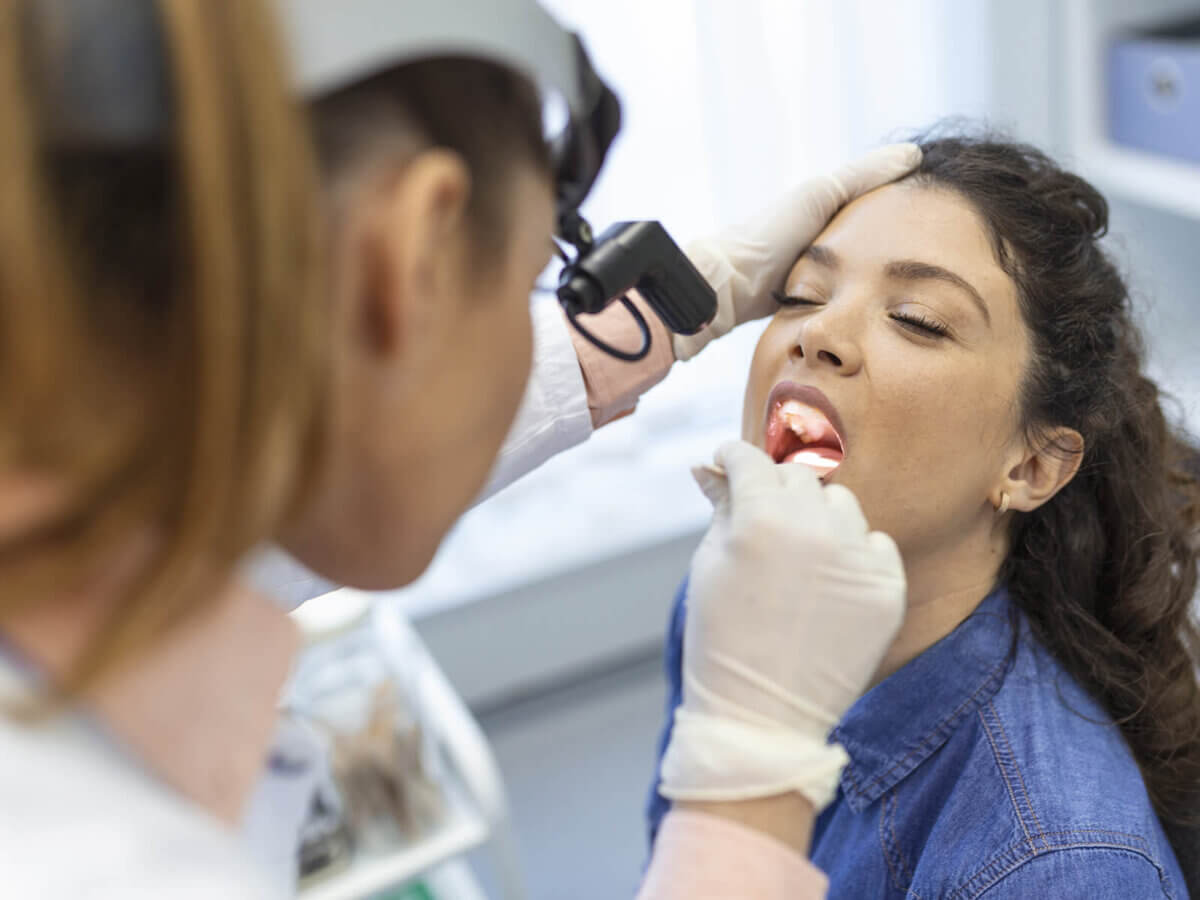Blog
Dental hygiene tips for healthy teeth & gums

Benefit From Early Detection With An Oral Cancer Screening
It is imperative to be vigilant when it comes to oral health. Beyond the daily regimen of brushing and flossing, regular screenings for oral cancer are paramount. As discussed in this blog, oral cancer screening plays a vital role in early detection and has profound implications for oral health.
Understanding Oral Cancer
The term oral cancer refers to a group of malignancies that affect different parts of the oral cavity and throat. While traditionally associated with tobacco and alcohol use, the landscape of oral cancer has evolved. The Human Papillomavirus (HPV) is emerging as a significant contributor, particularly among younger individuals.
Oral Cancer: The Importance of Early Detection
The adage “prevention is better than cure” rings especially true in the context of oral cancer. Early signs of oral malignancies tend to be more visible than those of other types of cancers. These may include persistent sores, changes in oral tissue texture or color, or difficulty swallowing. It is significantly more likely that a patient will recover successfully if these symptoms are identified early in the course of their illness.
The Role of Oral Cancer Screening
Detection of cancers at an early stage begins with regular screenings by dental professionals. During these screenings, oral cavities and adjacent tissues are examined comprehensively for abnormalities or suspicious lesions. Incorporating advanced diagnostic tools like VELscope or OralCDx enhances the precision of these screenings, enabling the detection of precancerous or cancerous lesions at their nascent, treatable stage.
Who Should Undergo Screening?
While oral cancer can affect individuals of all backgrounds, certain groups are at heightened risk and should prioritize screenings. These include people who have smoked or consumed alcohol in the past, those who have a family history of oral cancer, and those who have persistent oral lesions or symptoms. Additionally, with the increase in HPV-related oral cancers, younger individuals should also consider regular screenings in order to maintain good oral health.
Benefits of Early Detection
Here are some benefits of early detection of oral cancer:
1. Improved Treatment Outcomes:
Detecting oral cancer early allows for less invasive treatments and better chances of successful recovery compared to late-stage diagnosis. When treatment is initiated early, less aggressive procedures are used, which results in better treatment outcomes and greater survival rates.
2. Enhanced Quality of Life:
A treatment for oral cancer in its early stages causes fewer disruptions to daily life, preserving vital functions like eating and speaking. As a result, patients can find it easier to perform everyday activities with minimal impact on their oral health and aesthetics during and after treatment.
3. Reduced Healthcare Costs:
Oral cancer can be detected early, reducing the need for extensive treatment, hospitalization, and supportive care services associated with advanced stages. This, in turn, reduces healthcare costs overall, benefiting both patients and healthcare systems.
4. Peace of Mind:
Taking proactive steps to safeguard oral health with regular oral cancer screenings is a source of reassurance and peace of mind. Individuals can reduce anxiety and uncertainty about their oral health journey by staying informed and addressing any concerns promptly.
Wrapping up
Oral health relies heavily on proactive measures. Preventive dental care incorporates oral cancer screenings as an integral part of oral health care, resulting in numerous health benefits for individuals. Regular screenings can facilitate early detection, prompt treatment, and improved outcomes. Don’t hesitate to schedule your oral cancer screening – prioritize your oral health today..


